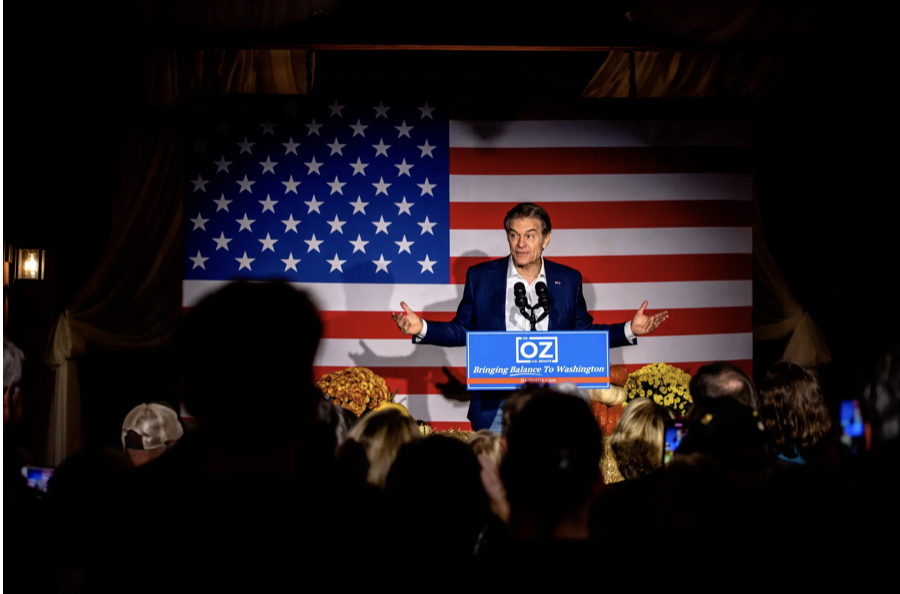In 2022, Mehmet Oz, a physician, television presenter and professor, more popularly known by his stage name “Dr. Oz,” ran in Pennsylvania for the U.S. Senate. Now, Oz has been nominated by President-elect Donald Trump as the administrator of the Centers for Medicare & Medicaid Services.
In Easton’s 3rd Ward 3rd District, which encompasses Lafayette’s campus and College Hill up to W. Pierce Street and Porter Street, Oz — who ran as a Republican — received a total of 76 votes in his 2022 Senate race. The election’s eventual winner, Democrat John Fetterman, received 463 votes in the district.
For many Lafayette College students voting in 2022, Oz was on one of the hottest ballots in the country, and voting for — or against — him was likely one of the first voting decisions a student ever made.
Students interviewed by The Lafayette — on a campus that mostly voted against Trump in November — largely had negative reactions to Oz’s appointment.
“It is clear that his beliefs push towards a privatized form of healthcare and that he believes in trying to make these private practices cheaper rather than introduce state-led initiatives,” James Hixenbaugh ’25 said. “As someone who grew up using Obamacare and saw how that system seemed to degrade over time until it was no longer what voters had initially supported, I can understand great speculation about state-led healthcare in general.”
“I struggle to imagine a fully privatized system that would be as accessible and equal as what a state-led system could be,” he continued.
The potential policy shifts under Oz’s leadership of Medicare and Medicaid focus heavily on privatization and tighter program restrictions. A staunch supporter of Medicare Advantage, Dr. Oz has advocated for expanding privatized options within Medicare, such as “Medicare Advantage for All,” which could increase reliance on private insurers.
Critics warn that such models risk leaving low-income and rural beneficiaries without adequate care, as private insurers tend to prioritize profitability, sometimes exiting unprofitable markets or denying services through prior authorization processes. Similarly, Oz has hinted at exploring Medicaid work requirements, a controversial policy that proponents argue reduces costs and promotes workforce participation but could also lead to coverage losses among vulnerable populations.
Some students noted the discrepancies in Oz’s television and medical career.
“He had all of these controversies with marketing unreliable medical products or untested medical products,” Chris Allen ’26 said.
Public health advocates remain vocal about the importance of transparency. A study previously found that less than half of the health advice given on “The Dr. Oz Show” — his talk show from 2009 to 2022 — was medically supported, raising fears about the prioritization of evidence-based care at the Centers for Medicare & Medicaid Services.
Allen acknowledged seeing campaign ads and the national spotlight on Oz in 2022.
“People were annoyed at him because he’s from New Jersey and was trying to run for Pennsylvania Senate seat, especially people who were local here,” he said.
Others voiced concerns about medical privatization, such as Anoosh Ahsan ’28.
The cost of over-the-counter medicine is more expensive in the United States, said Ahsan, an international student, “so even if I wanted to take advantage of those things, I would have to buy them at the rate that they are sold over here, which is insane.”
“We need to maintain that government-subsidized healthcare instead of Oz’s proposed healthcare privatization,” Shawn Chew ’28 said.
Oz’s Senate confirmation hearings in early 2025 will be a battleground for these debates. Public health experts are urging lawmakers to ensure a clear commitment to equity and science-based policies.

























































































































